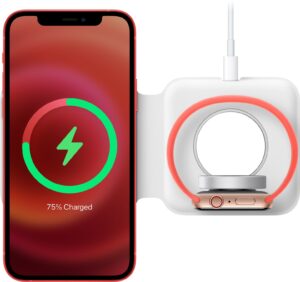Will low batteries affect your thermostat? The short answer is yes—they can have a significant impact on its performance. Imagine coming home after a long day, looking forward to a cozy and comfortable environment, only to find that your thermostat isn’t functioning properly. Frustrating, isn’t it? Low batteries can cause your thermostat to become unresponsive or even completely shut down. But fear not, for there is a simple solution! By replacing the batteries regularly, you can ensure that your thermostat operates smoothly and efficiently, keeping your home at the perfect temperature. So, let’s delve into the world of thermostat batteries and learn more about their importance and the steps you can take to avoid any inconvenience.
Will Low Batteries Affect the Thermostat?
When it comes to home thermostats, the importance of maintaining functionality cannot be overstated. After all, the thermostat is responsible for regulating the temperature in your home and ensuring your comfort. One common concern that homeowners have is whether low batteries can affect the performance of their thermostats. In this article, we will explore this topic in detail and provide you with all the information you need to know about the impact of low batteries on your thermostat.
Understanding How Thermostats Work
Before we delve into the effects of low batteries on thermostats, it’s essential to have a basic understanding of how these devices function. Thermostats are electronic devices that monitor and regulate the temperature of your home. They are designed to maintain a set temperature by turning the heating or cooling system on and off as needed.
Most modern thermostats are programmable, allowing you to set different temperature levels for different times of the day. This allows you to optimize energy usage and maintain a comfortable indoor environment. Thermostats can be powered by either a hardwired connection to your home’s electrical system or by batteries.
The Importance of Proper Power Supply
When it comes to thermostats, a reliable power supply is essential for their proper functioning. Whether your thermostat is hardwired or battery-powered, it needs a steady and adequate power source to operate effectively. If the power supply is compromised, it can lead to various issues, including:
- Inaccurate temperature readings
- Intermittent heating or cooling
- Failure to turn on or off at the desired times
- Loss of programming and settings
- Unresponsive or non-functional display
One of the common culprits of power-related problems in thermostats is low or failing batteries. If your thermostat is battery-powered, it relies solely on the batteries to function properly. When the batteries start to lose their charge, it can affect the overall performance of the thermostat.
The Effects of Low Batteries
Low batteries can have several adverse effects on the performance of your thermostat. These include:
- Erratic Temperature Control: When the batteries are running low, the thermostat may not be able to accurately control the temperature in your home. You may experience temperature fluctuations, with the heating or cooling system turning on and off unexpectedly.
- Loss of Programming: If the batteries die completely, your thermostat may lose all the programmed settings. This means you would have to reprogram the thermostat from scratch once the batteries are replaced.
- Unresponsive Display: Low batteries can cause the thermostat’s display to become dim or unresponsive. This can make it difficult to read the temperature or make any adjustments.
- System Malfunctions: In some cases, low batteries can cause the thermostat to malfunction completely, resulting in a total loss of heating or cooling. This can be a significant inconvenience, especially during extreme weather conditions.
Preventing Issues from Low Batteries
To avoid the problems associated with low batteries in your thermostat, it’s important to take preventative measures. Here are some steps you can take:
- Replace Batteries Regularly: If your thermostat is battery-powered, make it a habit to replace the batteries at regular intervals. This will ensure that the power supply is always reliable and prevent any potential disruptions.
- Use High-Quality Batteries: When replacing the batteries, opt for high-quality ones from reputable brands. These batteries tend to have a longer lifespan and provide a more stable power supply.
- Keep Spare Batteries Handy: It’s a good idea to keep spare batteries on hand so that you can quickly replace them when needed. This will minimize any downtime or inconvenience caused by low batteries.
- Consider a Hardwired Thermostat: If you frequently experience issues with low batteries or want to eliminate the need for battery replacements altogether, you may consider upgrading to a hardwired thermostat. These thermostats are directly connected to your home’s electrical system and do not rely on batteries.
While low batteries can indeed affect the performance of your thermostat, it is a problem that can be easily prevented. By being proactive in monitoring and replacing the batteries, you can ensure that your thermostat operates smoothly and keeps your home comfortable. Regular battery maintenance is a small effort that can go a long way in avoiding potential issues and maximizing the efficiency of your thermostat.
Frequently Asked Questions
Will low batteries affect my thermostat?
Yes, low batteries can affect the functionality of your thermostat. The batteries are responsible for providing power to the thermostat, allowing it to operate properly. When the batteries are low, your thermostat may start experiencing issues such as incorrect temperature readings, unresponsive buttons, or even complete shutdown.
How do I know if my thermostat batteries are running low?
One way to determine if your thermostat batteries are running low is by checking the display. If you see a low battery indicator or a flashing battery icon, it’s a clear sign that your batteries need to be replaced. Additionally, if your thermostat becomes unresponsive or starts behaving erratically, low batteries could be the culprit.
What type of batteries does my thermostat require?
The type of batteries required for your thermostat depends on the model you have. Most thermostats use common household batteries like AA or AAA. However, it’s essential to consult the user manual or check the specifications of your specific thermostat model to ensure you use the correct type of batteries.
How often should I replace the batteries in my thermostat?
It is recommended to replace the batteries in your thermostat at least once a year, or as soon as you notice any signs of low battery power. Regularly replacing the batteries will help ensure that your thermostat functions properly and avoids any interruptions in its performance.
What happens if I don’t replace the low batteries in my thermostat?
If you neglect to replace the low batteries in your thermostat, it may eventually cause the device to stop working altogether. This means that your thermostat won’t be able to control your heating or cooling system accurately, potentially leading to discomfort in your living space. It’s best to promptly replace the batteries to avoid any inconvenience.
Final Thoughts
Low batteries can indeed have an impact on the functioning of your thermostat. When the batteries are low, the thermostat may experience issues such as incorrect temperature readings, unresponsive buttons, or even a complete shutdown. It is crucial to replace the batteries regularly to ensure proper functionality. Neglecting this simple maintenance task can lead to discomfort, inefficiency, and potential damage to your HVAC system. So, to answer the question, “will low batteries affect the thermostat?” – Yes, they definitely will. Stay proactive and keep those batteries fresh to enjoy a hassle-free and well-regulated home environment.



